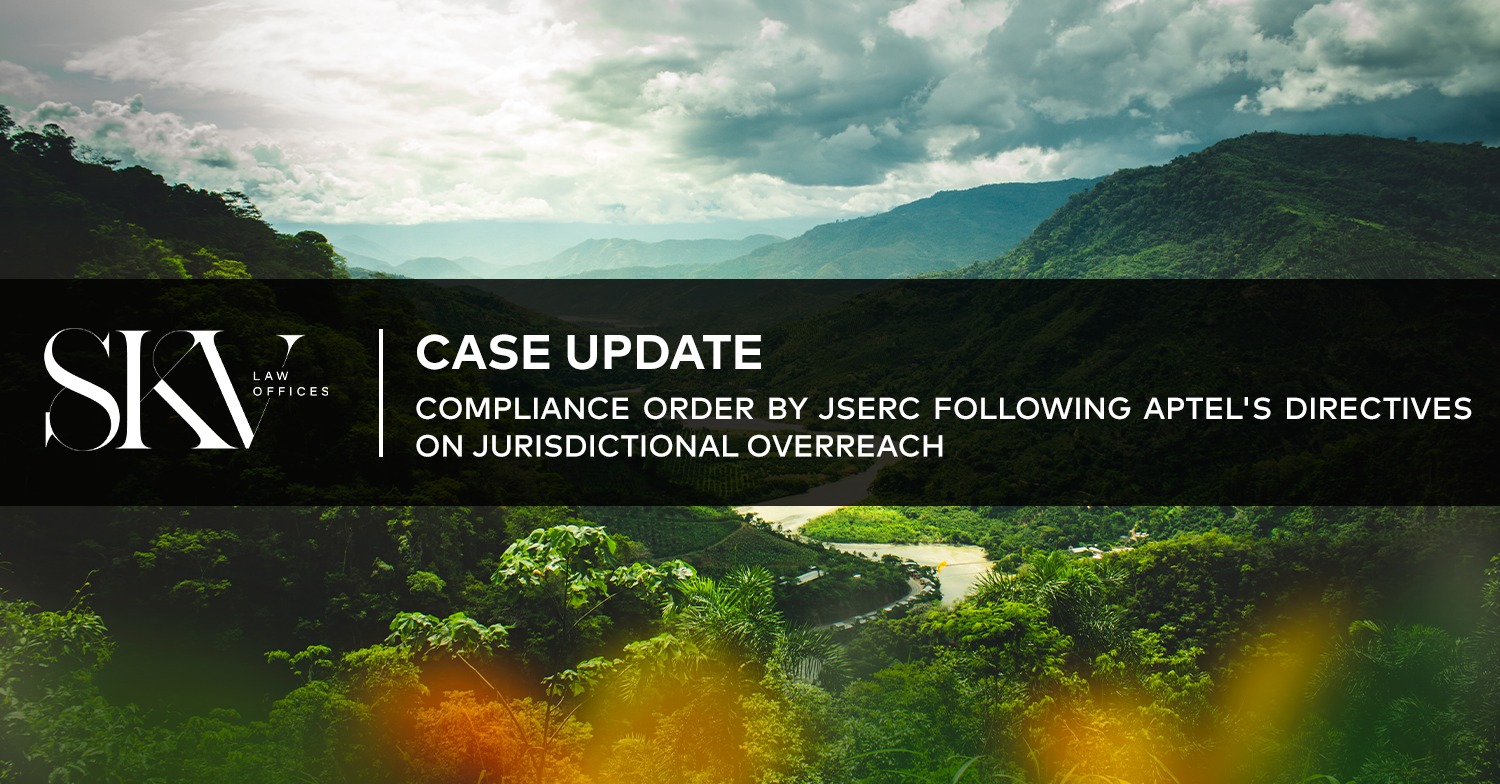Compliance Order by JSERC following APTEL’s Directives on Jurisdictional Overreach
24.12.2024
The Jharkhand State Electricity Regulatory Commission (JSERC) has issued a crucial compliance order in Case No. 09 of 2020, adhering to the directives of the Hon’ble Appellate Tribunal for Electricity (APTEL). APTEL had explicitly directed JSERC to consider only the Delayed Payment Surcharge (DPS) as Non-Tariff Income (NTI) for the distribution business of Damodar Valley Corporation (DVC) and to recompute the category-wise tariffs for consumers of DVC in the State of Jharkhand.
Background:
Initially, JSERC, while determining the Annual Revenue Requirement (ARR) and category-wise tariffs for DVC’s distribution business in Jharkhand, included NTI from DVC’s generation, transmission, and other non-distribution businesses. This approach resulted in a reduced ARR, consequently lowering the tariffs charged to Jharkhand consumers. JSERC, by allocating NTI from non-distribution business activities, curtailed the revenues recognized for DVC’s distribution business.
DVC, aggrieved by this methodology, filed an appeal bearing Appeal No. 845 of 2023 before APTEL, contesting the inclusion of NTI from non-distribution activities in the tariff computation for its distribution business.
APTEL’s Directives:
- Remand Order (05.02.2024):
APTEL directed JSERC to recalculate the NTI exclusively based on DVC’s distribution business in Jharkhand. It explicitly instructed JSERC to exclude NTI contributions from generation, transmission, and other non-distribution businesses, as these fall under the jurisdiction of the Central Electricity Regulatory Commission (CERC). (You can read more about APTEL’s Order dated 05.02.2024 in Appeal No. 845 of 2023 here.)
Despite the clarity of these directives, JSERC, in order dated 23.07.2024 passed in remand proceeding, continued to include income from all of DVC’s businesses as NTI, disregarding APTEL’s instructions.
- Interim Order (15.10.2024):
Aggrieved by JSERC’s non-compliance with the directives in the order dated 05.02.2024, DVC filed Appeal No. 332 of 2024 before APTEL. In this appeal, DVC highlighted JSERC’s failure to adhere to APTEL’s directives and sought rectification of the methodology used for NTI determination.
In its Interim Order dated 15.10.2024 passed in Appeal No. 332 of 2024, APTEL observed that JSERC had not complied with its earlier directive. APTEL held that JSERC had erroneously included NTI from DVC’s generation, transmission, and non-distribution businesses despite the clear and specific directions in the Remand Order dated 05.02.2024. Consequently, APTEL specifically directed JSERC to consider only DPS as NTI for DVC’s distribution business in Jharkhand and to recompute ARR and tariffs accordingly. (You can read more about the APTEL’s Order dated 15.10.2024 in APL No. 332 of 2024 here)
JSERC’s Compliance:
In this compliance order dated 10.12.2024, JSERC finally adhered to APTEL’s directives by implementing the following measures:
- Exclusion of NTI from generation, transmission, and other non-distribution businesses while determining ARR for DVC’s distribution business.
- Recalculation of ARR and category-wise tariffs for FY 2006-07 to FY 2011-12, with DPS as the sole NTI component.
This recalibration resulted in higher recoverable tariffs for DVC from consumers in Jharkhand, ensuring that its revenue requirements were appropriately met.
This compliance order marks a pivotal moment in ensuring regulatory clarity and fairness in the electricity sector. By excluding NTI components unrelated to the distribution business, the compliance order reaffirms the demarcation of responsibilities between the State Electricity Regulatory Commissions (SERCs) and the Central Electricity Regulatory Commission (CERC). This prevents regulatory overlaps and strengthens the sanctity of jurisdictional roles established under the Electricity Act, 2003.
The recalibration of NTI ensures that DVC is not unfairly penalized by the inclusion of revenue streams from non-distribution businesses in the determination of ARR. This fairness not only addresses DVC’s grievances but also sets a precedent for other utilities facing similar jurisdictional challenges.
In conclusion, the compliance order not only aligns regulatory practices with statutory mandates but also sets a high benchmark for accountability and fairness in the power sector.
Damodar Valley Corporation was represented before the Jharkhand State Electricity Regulatory Commission by Our Managing Partner, Shri Venkatesh and Assisted by Bharath Gangadharan, Counsel; Nihal Bhardwaj, Senior Associate; Kartikay Trivedi, Associate and Aashwyn Singh, Associate of the SKV Law Offices Team.


